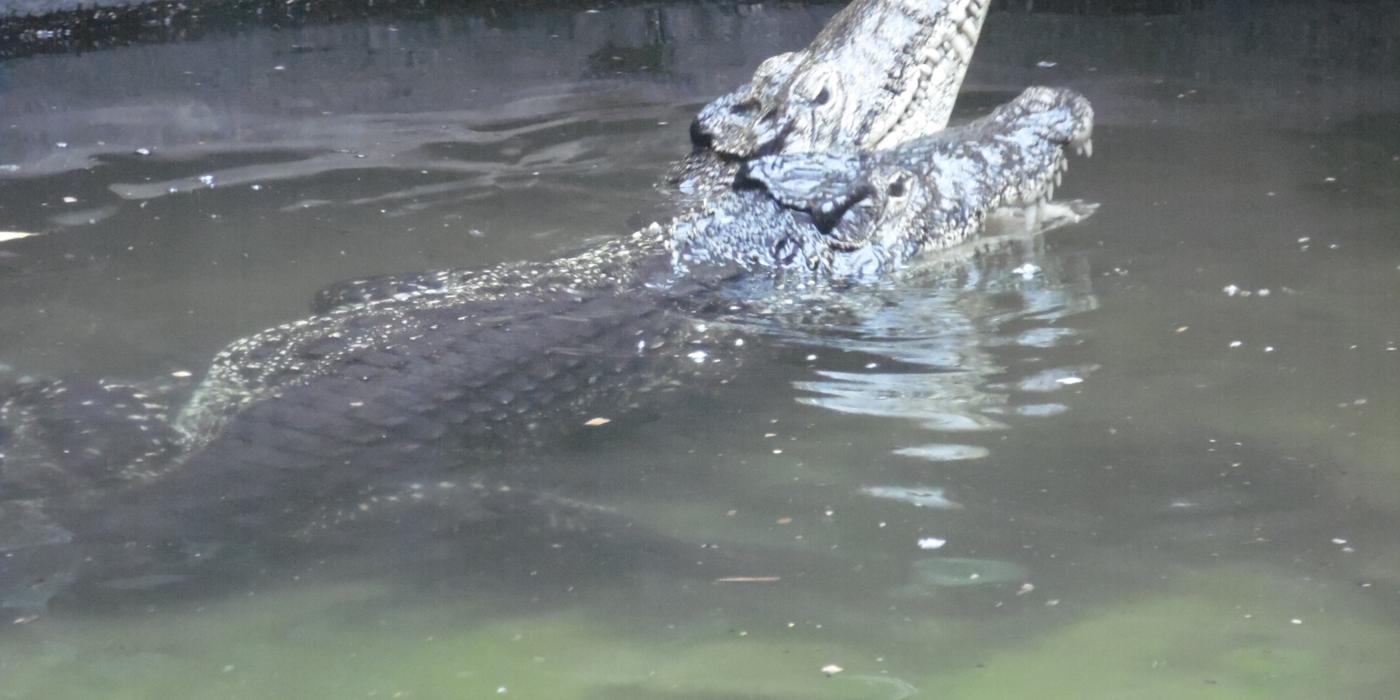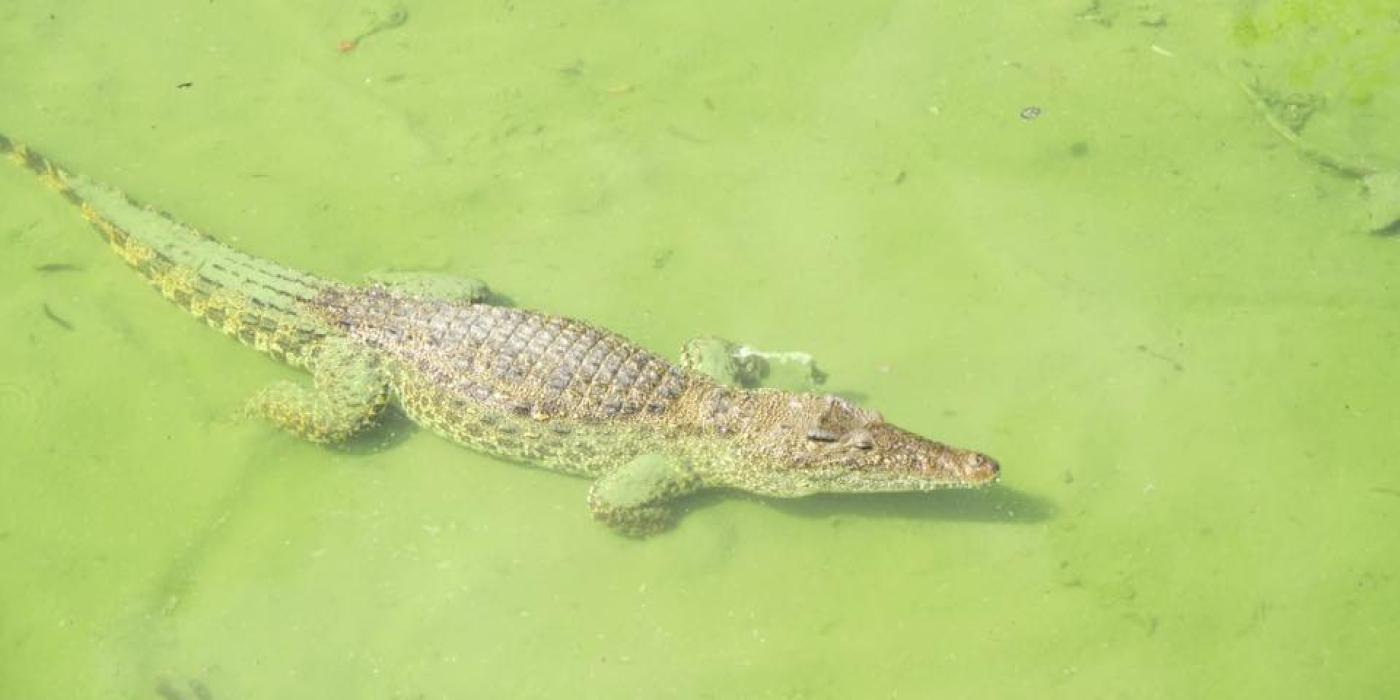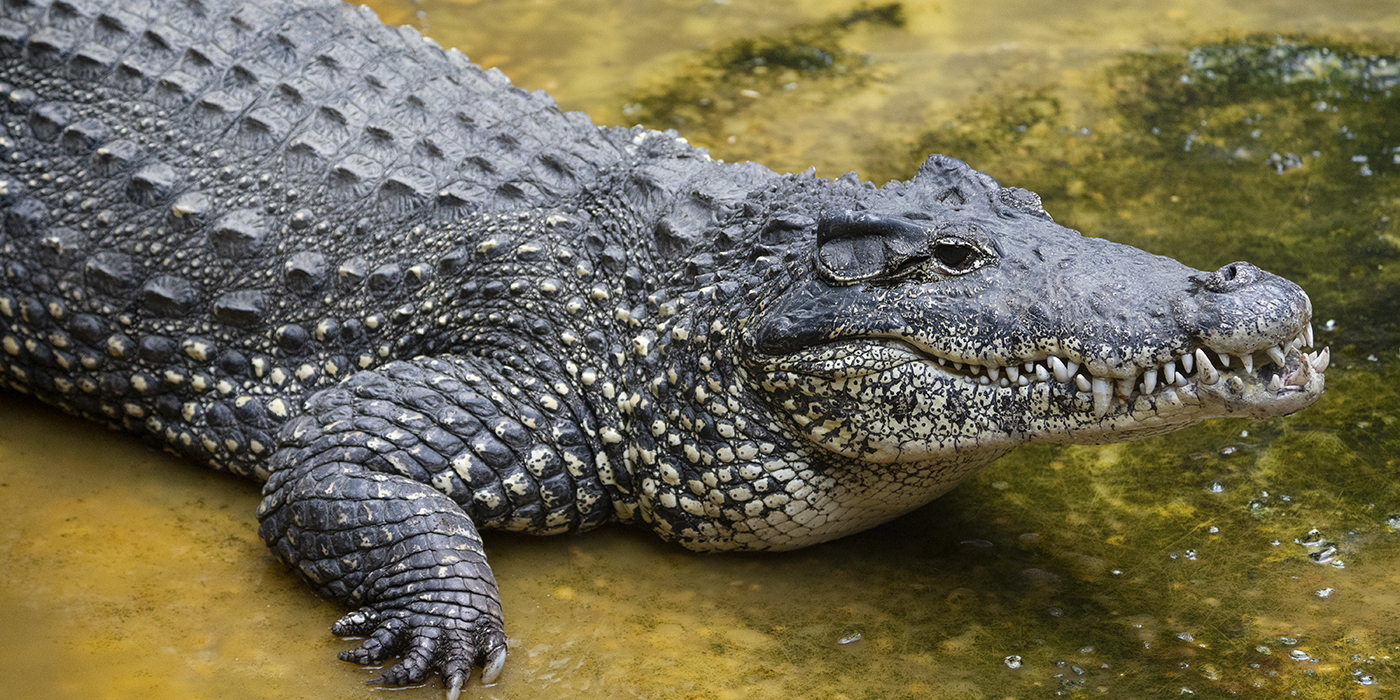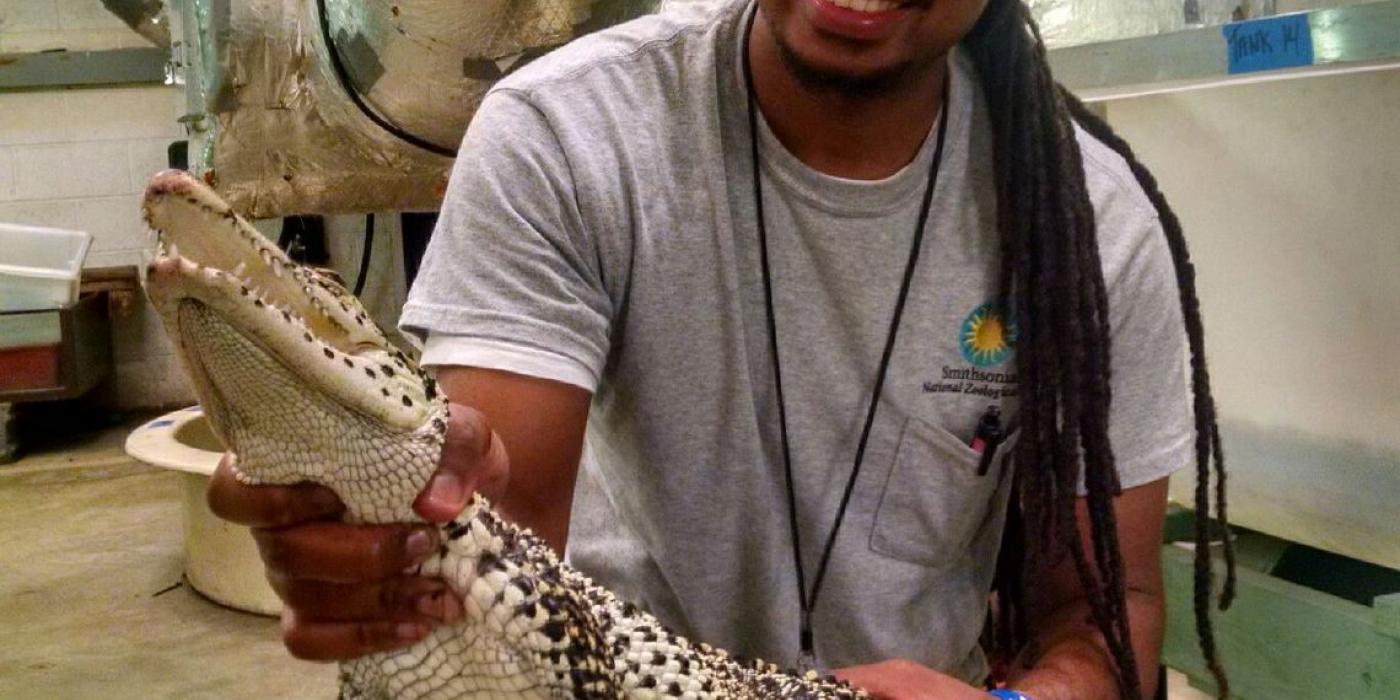Listening in on Cuban Crocodiles
The Reptile Discovery Center’s research on Cuban crocodiles is continuing! As breeding season ramps up, both of our pairs of Cuban crocodiles are engaging in various aspects of courtship as well as territorial displays. We are monitoring their behavior every day for several hours from 7 a.m. to 10 a.m. More specifically, we are listening for and recording vocalizations. Crocodilians utilize a variety of communication channels, one of which is acoustic. When we are monitoring the crocs, we track who is vocalizing and in what context he or she made the vocalization. When we download the recordings captured from inside the exhibit with microphones, we can tease out the different types of vocalizations the crocodiles are using and why they are using them. This research will contribute the few other studies out there that have investigated crocodile vocalizations. We are excited to continue are research on this critically endangered crocodilian and hope you can see some of their unique and complex behaviors when visiting the Reptile Discovery Center.
There’s really exciting Cuban crocodile work happening outside of the Reptile Discovery Center as well. In mid-February I traveled to Cuba to meet a researcher from the University of Havana, and the biologist at the Crocodile Farm in Zapata. The trip was amazing! The crocodile farm is successfully breeding and rearing thousands of Cuban crocodiles each year. These animals are bred primarily for conservation. They also release crocodiles into the wild to bolster wild populations. This is extremely important for the Cuban crocodile as its numbers are dwindling due to habitat degradation, poaching and hybridization. The farm houses more than 4,000 Cuban crocodiles, all of which have had genetic testing conducted by researchers from the University of Havana. (Hybridization with American alligators is a problem for wild Cuban crocodiles.)
Because it is winter in Cuba and the Zapata swamp is low, I did not see crocodiles in the wild. I did, however, get to meet up and talk with two of the researchers who work with this species in Cuba. They were both knowledgeable and inspiring. There is much work to be done to conserve the Cuban crocodile, and it will certainly take collaboration and dedication. I hope to continue to build relationships with both researchers in Cuba and other countries who are interested in conserving this unique species. I definitely plan to return to Cuba and see wild crocodiles in the future!
Related Species:




